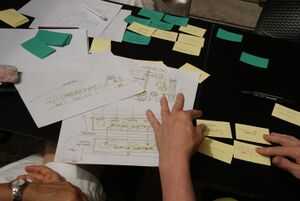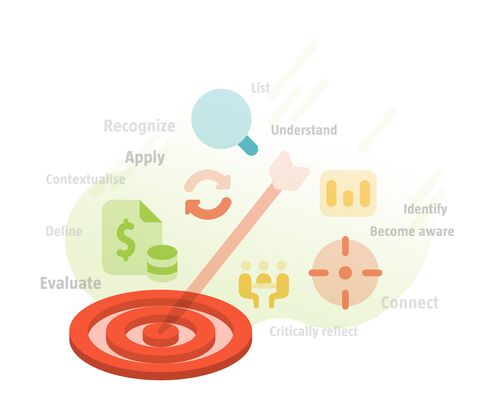TELOS Online Seminar 2022-2023
TELOS stands for: Towards a European Landscape Economy for a Sustainable Urban Development
We invite you to our Landscape Economy learning experience.
This seminar was running from October 2022 - January 2023
For whom is this course?
- Are you worried about our planetary boundaries?
- Are you an architect who cares about sustainable development?
- Are you an urban or landscape planner who wants to make planning and design more inclusive, systemic and strategic?
- Are you an economist who wants to work with other disciplines on transformative processes?
- Are you curious about other people and their knowledge?
- Are you eager to get to know people from other places – academics like you but also citizens and their local issues?
- Do you believe in your capability to create something new?
Then join us in the TELOS online programme, summer schools and living labs!
TELOS is about designing innovation by linking landscape and economy.
We invite an interdisciplinary audience of students as agents of transformative change for the benefits of local landscapes, economies and communities.
TELOS Online Course October 2022 - January 2023
- Our first online seminar will start on October 10, 2022, and finish on January 30, 2023.
- The course comprises weekly sessions starting at 16 pm CET
- Participants can acquire 5 - 10 ECTS, depending on their participation mode
Participation modes and distribution of credits
- We offer fexible participation modes with a 5, 10 and 15 ECTS model
- each model requires a specific combination of seminar assignments
- you can read more details on the seminar assignments page
Overview of TELOS assignments:
- Assignment 1: Concept Mapping
- Assignment 2: Landscape System Analysis
- Assignment 3: Landscape System Modeling
- Assignment 4: Field Research on Good Practices
Seminar topics and schedule October 2022 - January 2023
- all sessions start at 16 pm CET
- sessions from October 11 November 14 finish at 18 45 (double sessions)
- all remaining sessions are scheduled for 90 minutes
Thematic couse schedule:
- October 10: Seminar introduction and briefing
- October 17: Health & The Commons
- October 24: Mobility & Energy
- October 31: Agriculture & Forestry
- November 7: Dwelling, Production & Logistics
- November 14: Retail & Tourism
- November 21: Team presentations: Landscape System Analysis: Backcasting
- November 28: Focus topic: Forecasting
- December 5: Coaching Sessions
- December 12: Team presentations: Landscape System Analysis: Forecasting
- December 19: Introduction to Social Business Modeling
- January 9: Social Business Modeling and Impact Evaluation
- January 16: Coaching Sessions
- January 23: Team presentations: Landscape System Modeling
>>>find recordings, slides and readings on our resources page
Seminar objectives and learning goals
We expect that after course completion TELOS participants ...
- can list, recognize, recall and understand the main concepts related to landscape and economy, and the main concepts of at least one other discipline different to his/her own discipline
- know how to retrieve missing information using multiple strategies
- define the conceptual connections between landscape and economy
- can define the conceptual connections of the main concepts of at least one other discipline different to his/her own discipline
- can apply this knowledge to understand new landscape economy contexts
We further assume that TELOS learners become aware of the limits of their knowledge.
Further, TELOS participants should....
- remember the main methods relevant for a landscape economy approach such as DPSIR, Scenario Building, Collective Visioning, Prototyping, Modelling
- know at which stage in a process which methods can be applied
- be able to apply the main methods relevant for landscape economy approaches
- become aware of the limits of those methods
- become aware of his/her personal strengths with regard to each method
TELOS participants are critical and reflective and should be able to....
- name evaluation criteria in relation to sustainable development and to link these criteria to their analysis findings
- evaluate the impact of past and present landscape economy processes
- evaluate the impact of scenarios and of a (new) landscape economy model
- evaluate the plausibility and stability of a (new) landscape economy model
- critically reflect conflicts between sustainable development goals and trade-offs
TELOS participants...
- are able to identitfy sustainability challenges and conflicts that need to be addressed
- know innovative practices that have successfully addressed these challenges/conflicts
- can contextualise all these elements and translate them into a collaborative process
- can design / co-create a new landscape economy model (i.e. a spatial model and/or a business, governance or cooperation model for a concrete study area)
- can critically reflect the impact and feasibility of the new model



